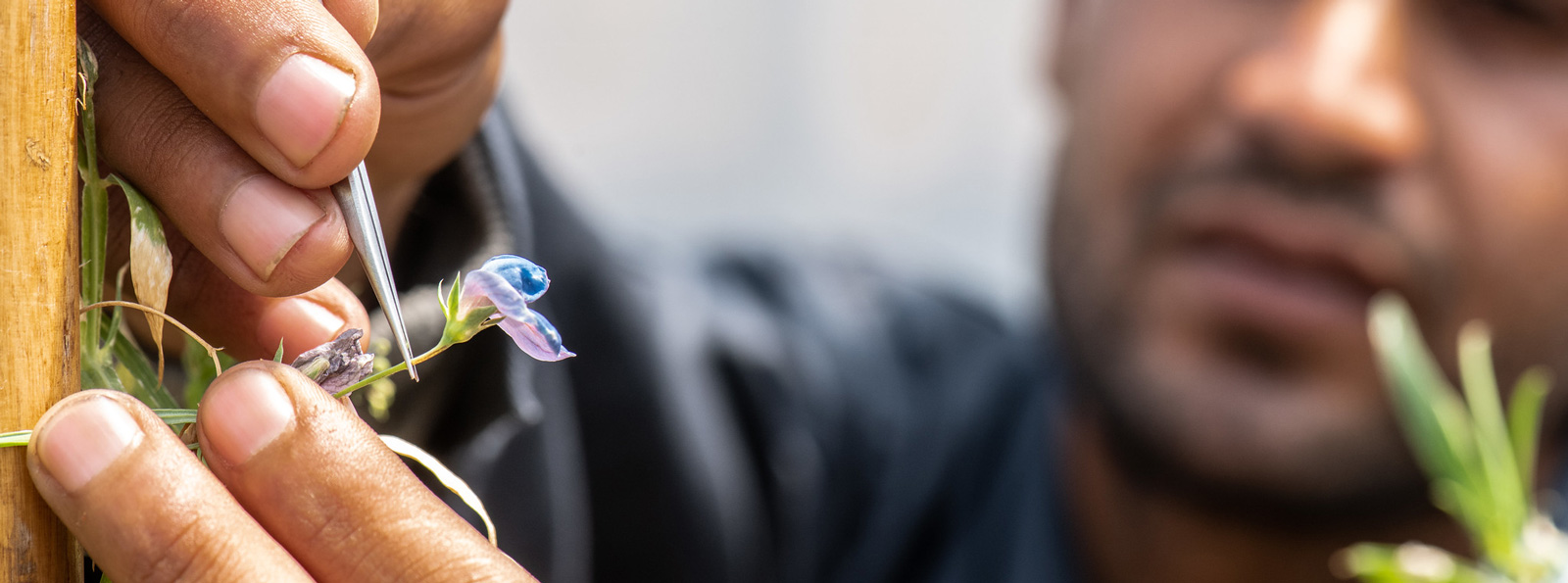BOLD at a Glance
The BOLD Project is a 10-year, USD 80 million project funded by the Government of Norway that addresses the impacts of the changing climate on food and nutrition security by supporting the conservation and use of crop diversity. Led by the Crop Trust, BOLD builds on the Crop Wild Relatives Project (2011-2021), which conserved and used the wild relatives of crops to help future-proof the world’s food supply.

15 national genebanks receiving resource and capacity strengthening:
- Azerbaijan
- Bhutan
- Cuba
- Ecuador
- Egypt
- Laos
- Lebanon
- Morocco
- Pakistan
- Peru
- Sudan
- Tanzania
- Uganda
- Vietnam
- Yemen
Seven crops receiving pre-breeding, participatory breeding and evaluation attention in 20 countries:

20 developing countries, five international organizations and two developed-world organizations participating in pre-breeding and participatory evaluation activities:
- Bangladesh (grasspea)
- Bhutan (grasspea)
- Ecuador (potato)
- Ethiopia (barley, durum wheat)
- India (grasspea)
- Kazakhstan (alfalfa)
- Kenya (finger millet)
- Kyrgyzstan (alfalfa)
- Morocco (barley, durum wheat)
- Nepal (grasspea)
- Nigeria (barley, durum wheat)
- Pakistan (alfalfa)
- Peru (potato)
- Senegal (barley, durum wheat)
- South Sudan (finger millet)
- Sudan (barley, durum wheat, grasspea)
- Tanzania (finger millet)
- Tunisia (barley, durum wheat)
- Uganda (finger millet)
- Vietnam - Can Tho University (rice)
- International Center for Agricultural Research in the Dry Areas, ICARDA (barley, durum wheat, grasspea)
- International Crops Research Institute for the Semi-Arid Tropics, ICRISAT (finger millet)
- International Potato Center, CIP (potato)
- The World Vegetable Center
- The Alliance of Bioversity International and CIAT
- James Hutton Institute (storing and sharing and visualizing pre-breeding and evaluation data)
- South Australian Research and Development Corporation, SARDI (alfalfa)
Four countries participating in work on seed systems, led by the Norwegian University of Life Sciences:
- Bhutan
- Ecuador
- Tanzania
- Uganda
Four countries participating in work on neglected and underutilized species:
- Benin
- Ghana
- Tanzania
- Uganda

